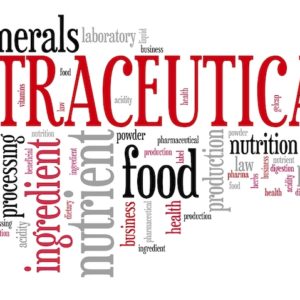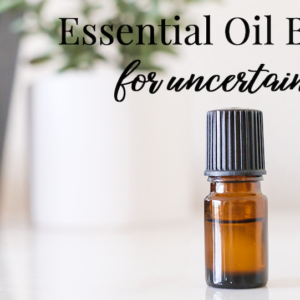Fever, body aches, fatigue, shortness of breath, congestion. . .all of these are common symptoms of COVID 19. But possibly one of the most tell-tale symptoms is the loss of the sense of smell. It seems to be the litmus test for this virus, and can be one of the most long-lasting symptoms. So what really causes the loss of smell, and is there anything you can do about it?
First, a few terms. Anosmia, literally translated smell-blindness, is the total loss of the sense of smell. Parosmia refers to a dysfunctional or impaired sense of smell. Both have been reported by COVID sufferers. Often, anosmia occurs and sufferers experience parosmia before regaining their sense of smell over time.
The Importance of Smell
The loss of the sense of smell is more than just annoying. You may be surprised at all the functions your sniffer plays in your everyday life.
- Smell directly impacts the sense of taste. In fact, about 80% of the flavors we taste arrive from what we smell.
- Smell can be the first thing to alert you to danger, such as smoke or rotten food.
- The sense of smell impacts your quality of life. Anosmia sufferers describe feelings of isolation and a blunting of emotions.
- Because the sense of smell is closely tied to the amygdala portion of the brain, it plays a significant role in memory. (Learn more about this connection in this post.)
- In the same way, the sense of smell can impact emotions and mental health.
So even though anosmia may sound like nothing more than a minor annoyance, when prolonged, it can actually lead to depression, anxiety, isolation, and other issues.
Why Does COVID 19 Cause Loss of Smell?
Scientists offer a few different opinions about the mechanism by which the virus robs the sense of smell. Initially, scientists speculated that the virus damages specialized sensory neurons that send sensory information to the brain. However, more recent research reveals that “the novel coronavirus changes the sense of smell in patients not by directly infecting neurons but by affecting the function of supporting cells.”
This is good news because these supporting cells can heal and regenerate much more effectively than sensory neurons. For this reason, a loss of smell resulting from COVID is almost always temporary. Interestingly, the damage to supporting cells also explains some of the memory and other neurological issues caused by the virus.
Tips for Regaining Sense of Smell

Olfactory Training
Smell training is actively sniffing the same four scents daily for about 20 seconds each. Choose fragrances with distinct, strong aromas, such as garlic cloves, spices, mint, eucalyptus, and ground coffee. This method is surprisingly effective, possibly even better than corticosteroid nasal sprays.
Stop Smoking
Cigarette smoking can drastically impair the sense of smell, as well as the body’s ability to heal.
Castor Oil
The main component of castor oil, ricinoleic acid, help fight infections. It also helps reduce inflammation inside the nasal passage, which speeds healing and may help recover the loss of smell. To use it, gently warm castor oil in a glass of warm water. Place two drops in each nostril twice a day.
Zinc
Zinc is a vital nutrient in the process of cellular regeneration. It helps stem cells replicate used, aged or damaged receptor cells in the nose and mouth. Taking a zinc supplement may encourage your smell to recover more quickly. A word of caution though: Avoid zinc nasal sprays and do not take hyper-doses of zinc, as this can actually worsen anosmia.
Other Vitamins
Adequate vitamins help support our bodies’ ability to heal. Eating a diet rich in essential vitamins and nutrients is perhaps the best defense. Consider the following vitamins:
- A: Supports growth and repair of olfactory endings
- C: Combats free radicals and important for cellular health
- D3: Boosts immune function
- B-12: Supports the respiratory system and proper olfactory function
When All Else Fails
Maybe you’ve lost your sense of smell and you’ve already tried the above remedies and then some. We don’t clearly understand why some people regain smell in a few days or weeks, while others take months. This may depend on the extent of the cellular damage, baseline health of the individual, and other unknown factors. However, keep in mind that permanent anosmia from COVID-19 is extremely rare.










